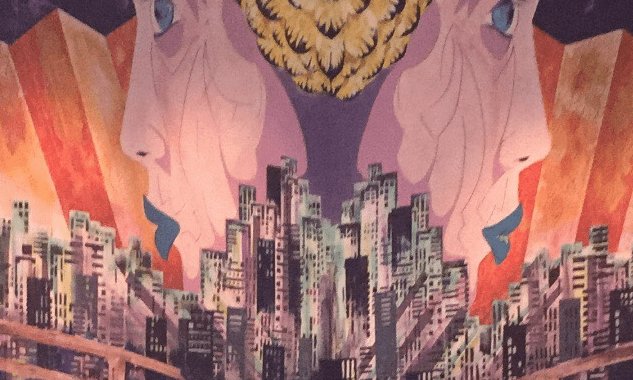A black lesbian traces her relationship with her own racial identity.
When you are going through your own ‘black renaissance’ and you are married to a non-black, it’s interesting territory. Being black was foremost on my mind when I was young because I was confronted with it on all sides. My mother who could ‘pass’ as white, didn’t want me to associate myself with my brown skin. So she hated it when I got my first afro and asked why I wanted to look like a nigger. My mother.
Then there were my class mates, and the one who was Mormon and couldn’t bring me home to play because her family wouldn’t approve. Or the one who asked where was my tail, or later in high school when my football star prom date changed his mind about holding my hand in public because he said it was too much pressure.
When I got to college, I talked too ‘white’ to be black and I looked too “black” to be white. Not fitting in was the norm, so I created an identity where I focussed on being excellent, hoping it wouldn’t matter. Once I impressed, dazzled and out performed many of my colleagues, I took a breath and forgot that I was black. Then I realized at 32, married with three children, that I was more sexually attracted to women than I had ever been to a man. I loved my men. I loved kissing them and occasionally having sex with them, but I loved everything about being with a woman.
At first this revelation was not welcome. I cursed God for making me a woman, black, and a lesbian. I decided that I had to accept who I was, as the only way out of a chronic depression I’d lived with for my first few decades. So first I had to accept that I was a black woman. I began to relate to the music, the strength, and the beauty of my blackness. I performed publicly as a singer for the first time and I sang a gospel song. I had my hair artistically formed into locks. I designed the Black History Month celebration at my Fortune 500 company. Once I felt sufficiently black, I went on to accept and come out as a lesbian.
So for the past twenty years I’ve pretty much focused on being in relationships with women, and working on causes related to Lesbian, Gay, Bisexual and Transgender school safety, equal workplaces and welcoming communities. And now, without intending it, my attention has once again turned toward my ethnicity, race, skin, and place in America and in the world. Darker skin has been subjugated, relegated, regulated, stipulated and hated. The pain of it made me try to spiritualize it away into oneness and focus on what made us the same and trick myself into thinking I had overcome.
I started to feel like I was not owning up to life with the “Occupy Wall Street” movement. I didn’t move although I knew what they were bringing up was true. When I heard about the legislation called “Citizens United” alarm bells went off and I ran around like chicken little yelling about it but I didn’t really move. When I saw the numbers of women and children forced into human trafficking, my heart broke into more pieces but I didn’t move. When I began to learn more about mass incarceration and its connection to slavery, Jim Crow and racism, I was too uncomfortable not to move. I moved just enough to get a closer look. By the time Black Lives Matter came to be I was full of rage, fury, guilt and sorrow with no place to put it.
Two years ago an event called Black Women Rise was created. It is a multigenerational, multi-racial event to lift up the voices, history and power of black women. It was held in Palm Beach Florida and Angela Davis was their first keynote. Months before I had been inspired to write a play where I am having a “Conversation with Angela” and I ask her about spirituality and activism and what is ours to do. I got to meet Angela and I awkwardly gave her a copy of my play. I don’t mind that it may not be any good at all or whether she reads it. I am just glad I moved.
My wife is white. Her heritage is Italian/Irish. She has been encouraging me in exploring my heritage. My explorations have included genetic research, family tree research and studying the false construct of race and its implications in our lives. She doesn’t understand or share my pain of being black in America. She doesn’t try to pretend she does and that is a relief. I had a testy conversation on Facebook with a man married to a black woman with whom he had biracial children. He believed that his marriage qualified him to be “diversity” in a leadership group that was all white. I do not believe my wife qualifies as diversity because she is married to me. I believe it gives us an opportunity to explore the constructs of whiteness and blackness in an atmosphere of love.
One of the ways that I continue to move and grow is by producing Provincetown Inspiration Weekend. It is an immersive experience of music, spoken word and workshops all designed to help you connect with the deepest and most authentic part of you. The world needs us all to know ourselves and move from love to know others. Join us and fill your inner well for all that life has in store for you.
Register now at www.inspirationgatherings.org
